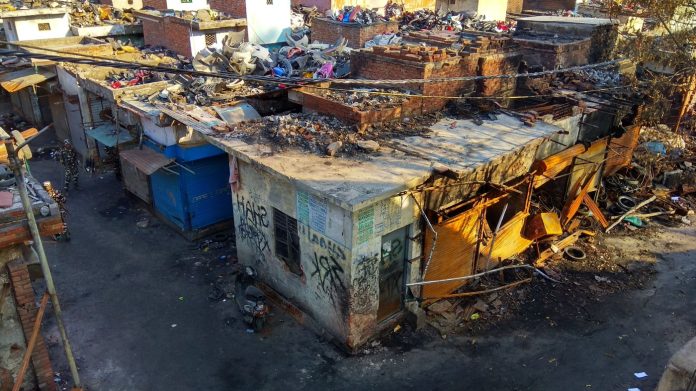1 June 2024: An investigation by the Delhi Police has been discredited for fabricating charges against nine Muslim men accused of setting fire to an eatery during the Delhi riots in February 2020. A judge dismissed the case in March 2024, stating that the evidence and witness statements were concocted. This is one of at least 60 cases dismissed in the last four years, revealing systemic flaws in the investigation of the riots, which resulted in the deaths of mostly Muslim victims.
Fabricated Charges and Planted Witnesses
The accused were charged with rioting, criminal conspiracy, and destruction of public property. The police claimed that the Muslim men attacked the Sanjar Punjab Chicken Corner, a Muslim-owned eatery, during a night of violence on 23 February 2020. However, the court found that the attack was actually carried out by a Hindu mob, witnessed by the investigating officer (IO), Hukum Singh, from the Dayalpur police station.
Court Findings
Additional Sessions Judge Pulastya Pramchala of the Karkardooma district court found that the statements from the prosecution were “artificially prepared.” Singh, despite witnessing the Hindu mob’s attack, failed to note the correct identity of the attackers in his First Information Report (FIR). The judge criticized Singh for not questioning other witnesses who could have identified the mob.
Without credible evidence, nine of the accused were identified by two police witnesses a year after the incident. The tenth and eleventh accused were implicated based on video evidence that did not sufficiently prove their involvement. The court found no evidence of a criminal conspiracy among the accused.
Patterns of Police Misconduct
This case is part of a broader pattern of police misconduct in investigating the Delhi riots. Of the 88 cases concluded out of 695 filed, 68 resulted in acquittals. Judges have described police actions as “evasive,” “callous,” and “farcical.” Despite this, no police officers have been held accountable for fabricating cases.
Planted Witnesses and Tampered Statements
The police relied on two planted witnesses whose statements did not initially identify the accused. Their later statements were vague and appeared to be fabricated. The complainant, Mohd Mumtaz, whose shop was attacked, stated the rioters chanted “Jai Shree Ram,” but a police statement falsely attributed to him claimed the attackers were anti-CAA protesters.
Lack of Accountability
The police’s failure to produce credible evidence and the systemic issue of wrongful accusations against Muslims in the Delhi riots underscore a troubling misuse of the judicial system. Defence lawyers highlighted police torture and the illegal detention of the accused, with medical records from Tihar prison corroborating injuries sustained during police custody.
Conclusion
This case exemplifies the ongoing issues within the Delhi Police’s handling of the 2020 riots. The lack of accountability and the pattern of framing Muslims for crimes committed during the riots call for a thorough review of the police practices and judicial oversight.




